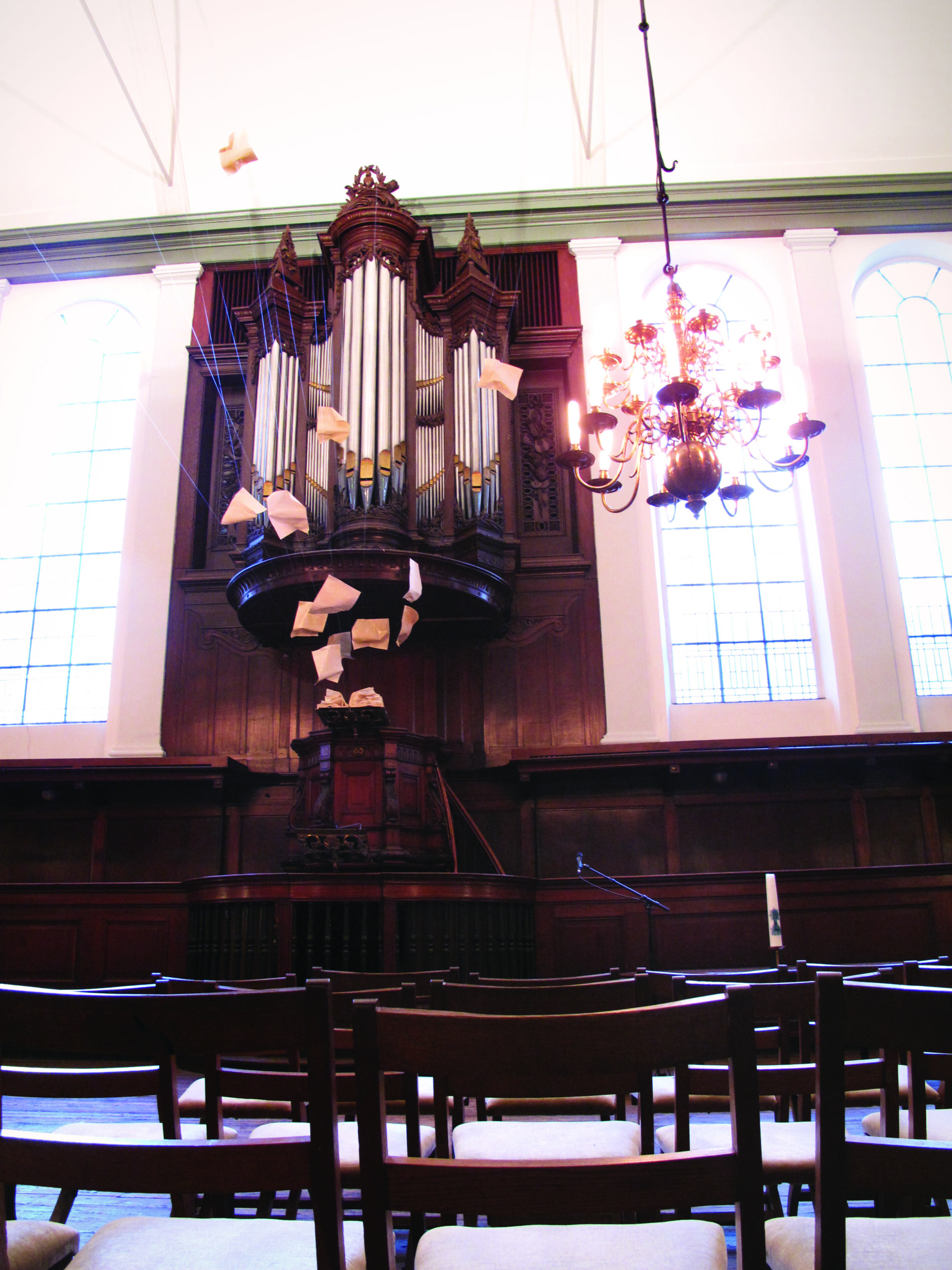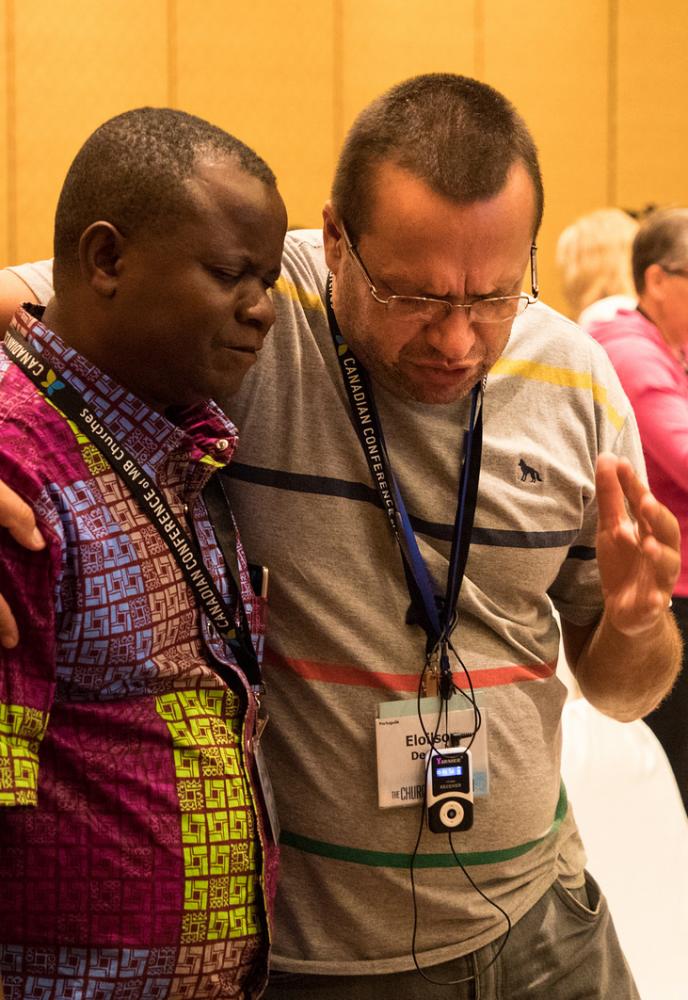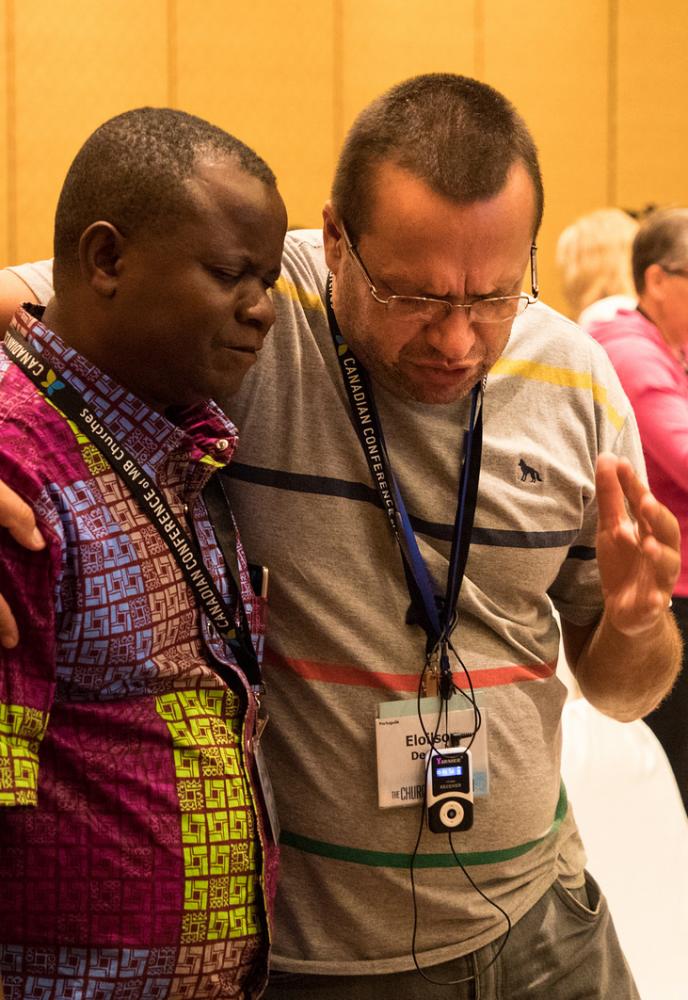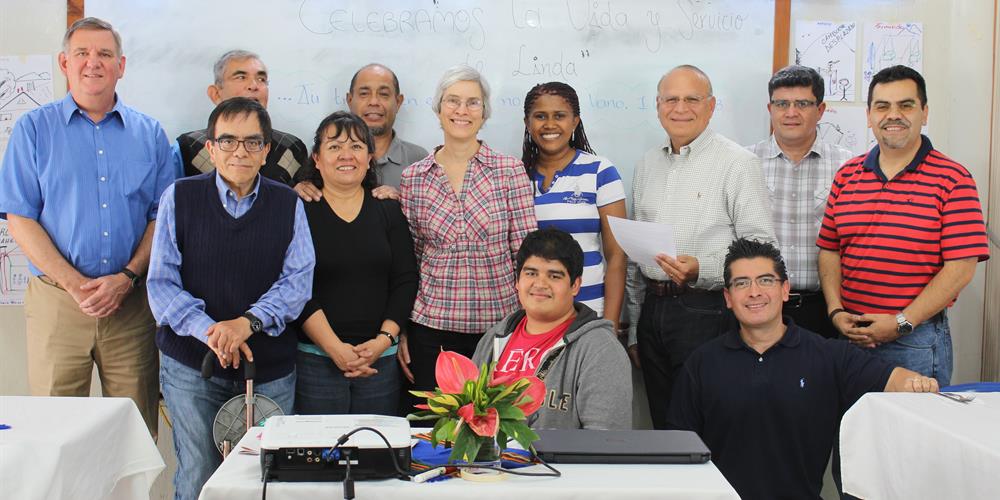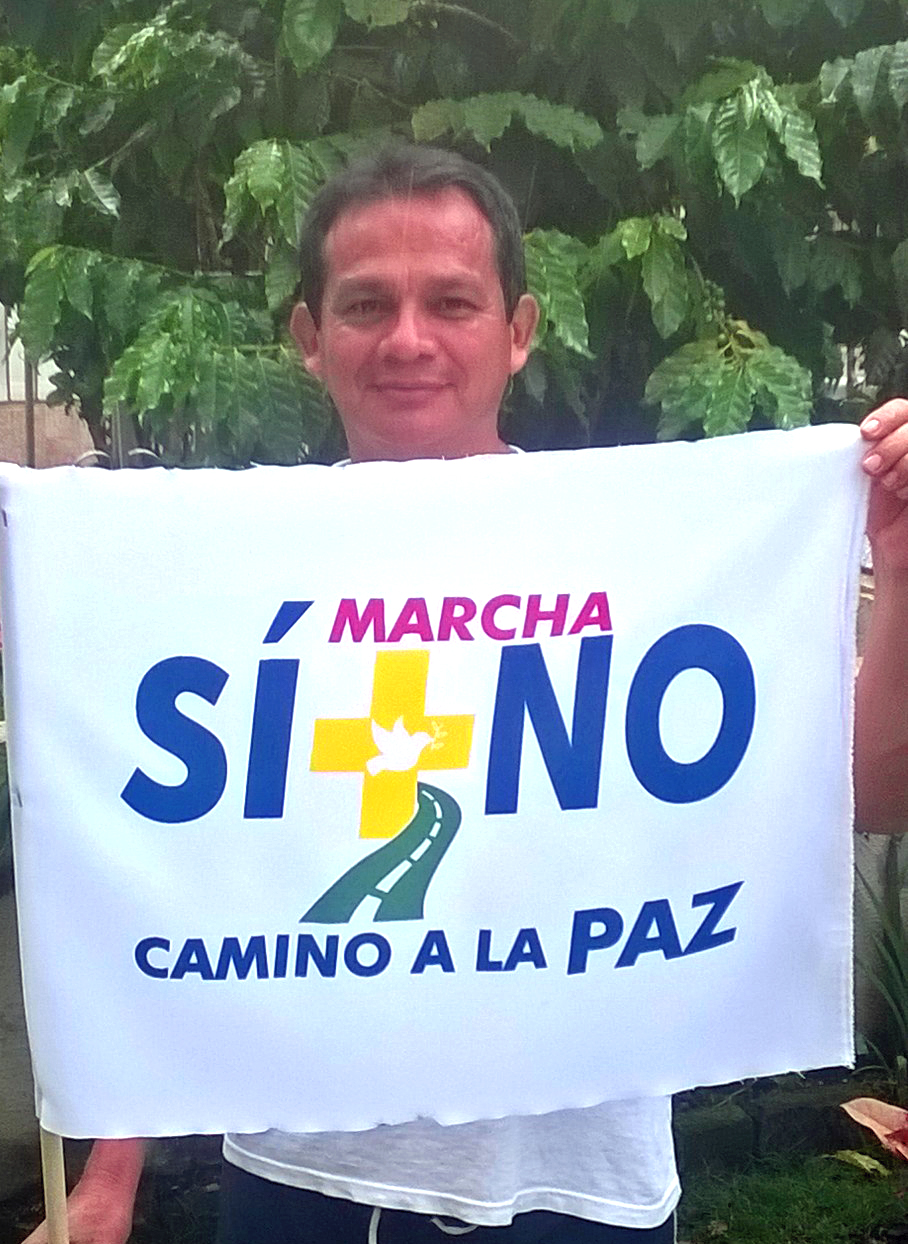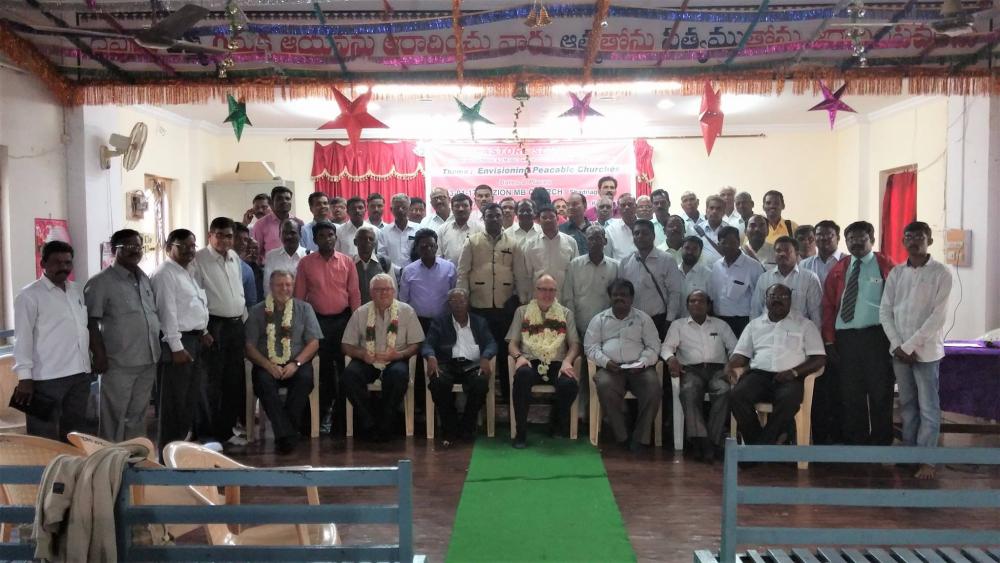-
Transformed by the Word
Like the chambers of a heart, the four MWC commissions serve the global community of Anabaptist-related churches, in the areas of deacons, faith and life, peace, mission. Commissions prepare materials for consideration by the General Council, give guidance and propose resources to member churches, and facilitate MWC-related networks or fellowships working together on matters of…
-
Ministry partner update: ICOMB – March 2017
The International Community of Mennonite Brethren (ICOMB) is made up of 21 national churches in 19 countries with approximately 450,000 members. ICOMB exists to facilitate relationships and ministries to enhance the witness and discipleship of its member national churches – connecting, strengthening and expanding. More than 200 Mennonite Brethren church leaders from 35 countries gathered…
-
Ministry partner update: ICOMB – March 2017
The International Community of Mennonite Brethren (ICOMB) is made up of 21 national churches in 19 countries with approximately 450,000 members. ICOMB exists to facilitate relationships and ministries to enhance the witness and discipleship of its member national churches – connecting, strengthening and expanding. More than 200 Mennonite Brethren church leaders from 35 countries gathered…
-
Online theological education opens doors
Elkhart, Indiana, USA – Nora Marleni Martínez of Metapan, El Salvador, is in the first group of students in a regional Peace and Justice Institute program of the Seminario Anabautista Latinoamericano (SEMILLA). Now, some SEMILLA courses are online, making it possible for Martínez to only travel a long-distance half as often. “I can make my…
-
The road to peace after the plebiscite in Colombia
A plebiscite was held in Colombia on 2 October 2016, for the citizens to approve or reject the agreements reached between the government and the Fuerzas Armadas Revolucionarias de Colombia – Ejercito del Pueblo (Revolutionary Armed Forces of Colombia – People’s Army, FARC) after four years of negotiations. A variety of groups participated in this…
-
YABs Fellowship Week in Bogot· and around the world
Bogotá, Colombia – In June 2016, the dream of worshipping together as the global family became a reality, when local young people from three denominations celebrated the inaugural YABs Fellowship Week with a joint worship service in Bogotá. “It was another space to feel the connection between us, as young Anabaptists in the world, that…
-
Ministry partner update: ICOMB – February 2017
The International Community of Mennonite Brethren (ICOMB) is made up of 21 national churches in 19 countries with approximately 450,000 members. ICOMB exists to facilitate relationships and ministries to enhance the witness and discipleship of its member national churches – connecting, strengthening and expanding. Rudi Plett began working for ICOMB (half time) on January 10.…
-
My spiritual journey
Testimony of the first woman to be ordained to full time-ministry in Brethren in Christ churches in Southern Africa My name is Jessie Francis Kamoto. I was born on 20 November 1975 in a Christian family, members of Church of Central African Presbyterian (CCAP). I got married in 1993 to Reverend Francis Kamoto. God…
-
Canadian renovation builds church in Latin America
Winnipeg, Manitoba, Canada – When Toronto United Mennonite Church (TUMC) decided it was time to renovate and expand their building, the congregation wanted the project to reach beyond their usual sphere of influence. Located in Canada’s largest, multicultural city, TUMC has some 200 people from five continents speaking 10 mother tongues, with a particularly strong…
